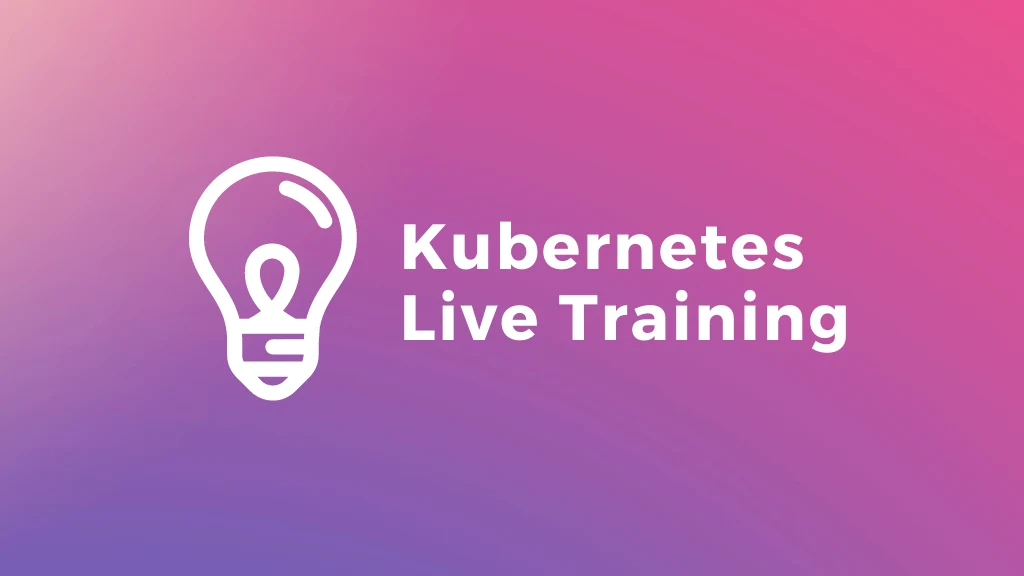Certified Kubernetes Administrator training
This Coding Bootcamps school live course prepares you for the Certified Kubernetes Administrator (CKA) exam by the Cloud Native Computing Foundation. You will learn how all of the components of a Kubernetes cluster work together, how to monitor all components of a cluster, and how to build your own Kubernetes cluster from scratch. We will also cover networking, deploying applications, scheduling pods, logging, and a whole lot of practice in the command line.
The CKA exam is heavily focused on practical application, as it is a hands-on test of your ability to run commands to perform specific actions. There are no multiple-choice questions in this exam. To account for this, you will be provided with a number of hands-on labs to practice on your own and best prepare for the exam.
Learning Objectives
The CKA Certification focuses on the skills required to be a successful Kubernetes Administrator in industry today. This includes these general domains and their weights on the exam:
- Application Lifecycle Management 8%
- Installation, Configuration & Validation 12%
- Core Concepts 19%
- Networking 11%
- Scheduling 5%
- Security 12%
- Cluster Maintenance 11%
- Logging / Monitoring 5%
- Storage 7%
- Troubleshooting 10%
Requirements
None
Certified Kubernetes Administrator Outline
I- Installation and Setup Master & Worker node
- Kubernetes Core Concepts
- ETCD For Beginners
- ETCD in Kubernetes
- Kube-API Server
- Kube Controller Manager
- Kube Scheduler
- Kubelet
- Kube Proxy
- what is a Pod
- PODs with YAML
- Demo – PODs with YAML
- ReplicaSets
- Deployments
- Namespaces
- Services
- Services Cluster IP
II- Scheduling
- Manual Scheduling
- Labels and Selectors
- Taints and Tolerations
- Node Selectors
- Node Affinity
- Taints and Tolerations vs Node Affinity
- Resource Requirements and Limits
- Note on default resource requirements and limits
- DaemonSets
- Static Pods
- Multiple Schedulers
- Configuring Kubernetes Scheduler
III- Logging and Monitoring
- Monitor Cluster Components
- Managing Application Logs
IV- Application Lifecycle Management
- Rolling Updates and Rollbacks
- Configure Applications
- Commands
- Commands and Arguments
- Configure Environment Variables in Applications
- Configuring ConfigMaps in Applications
- Configure Secrets in Applications
- Scale Applications
- Multi Container PODs
- Multi-container PODs Design Patterns
- InitContainers
- Self Healing Applications
- If you like it, Share it!
- Download Presentation Deck
V- Cluster Maintenance
- OS Upgrades
- Kubernetes Software Versions
- References
- Cluster Upgrade Process
- Backup and Restore Methods
- Working with ETCDCTL
VI- Security
- Kubernetes Security Primitives
- Authentication
- TLS Basics
- TLS in Kubernetes
- Certificates API
- kubeconfig
- Persistent Key/Value Store
- API Groups
- Role-Based Access Controls
- Cluster Roles and Role Bindings
- Image Security
- Security Contexts
- Network Policy
- Container Storage Interface (CSI)
VII- Storage
- Volumes
- Persistent Volumes
- Persistent Volume Claims
- Using PVCs in PODs
- Application Configuration
VIII- Networking
- Service Networking
- DNS in Kubernetes
- CoreDNS in Kubernetes
- Ingress
- Ingress – Annotations and rewrite-target
Related Self-paced Courses
Related Live Courses
- Live training class for mastering Docker, containers and cloud deployment
- Complete live training for mastering DevOps and all of its tools
Related Webinars
What Is Next
After you submit your intake form and register the course, we will put you in an upcoming class based on your availability. Once we confirm your class schedule, we will email you your final class schedule.
IMPORTANT: To make the most of your training, it is highly recommended to add your class schedule to your personal calendar and attend all class sessions. We do NOT offer make-up sessions if you miss a session.

